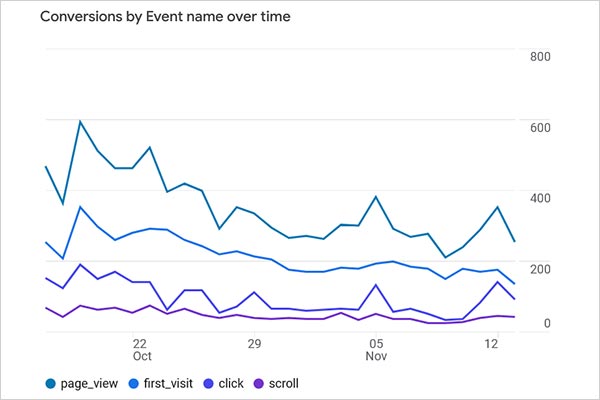Tracking marketing goals is critical to ensure that your campaigns are effective and to identify areas that need improvement. Tracking goals and objectives allows you to measure your marketing campaigns’ Return on Investment (ROI) and make informed decisions about allocating your resources.
Create Reports to Track Your Key Metrics
To track your marketing performance, you must identify the key metrics (Key Performance Indicator (KPI)) that matter to you, choose the right tools, and implement a tracking system.

Define Your Marketing Goals to Measure Success
What do you want to achieve with your marketing efforts? Are your marketing goals to increase brand awareness, generate leads, or boost sales? Or all the above? Once you know your goals, you can identify the key metrics to track to measure your progress.
6 Steps to Track Your Marketing Efforts and Get Results
- Track Brand Awareness. You could use website traffic, social media engagement, and brand mentions metrics to track brand awareness.
- Track Leads and Sales. You could track lead generation metrics like form submissions, email signups, and website downloads. And if your goal is to drive sales, you might track metrics like conversion rate, customer acquisition cost, and revenue.
- Choose the Right Marketing Tracking Tools. Various marketing tracking tools are available, both free and paid. The best tool for you will depend on your specific needs and budget. Google Analytics is a popular free marketing tracking tool that provides comprehensive website traffic and engagement data.
- Implement a Tracking System. Once you have chosen your marketing tracking tools, you must implement a tracking system on your website and marketing campaigns. This will involve adding tracking codes to your website and setting up goals and conversion events in your marketing campaigns.
- Set up Monitoring Alerts. Once you have implemented your tracking system, you should set up monitoring alerts so you can be notified of any changes in your data. This will help you identify any problems or opportunities quickly.
- Analyze, Test, and Optimize. Once you have collected some data, the next step is to identify trends and patterns by analyzing the data. This information is vital to test and optimize your marketing campaigns.
An example would be if your website traffic spikes from a particular social media platform, focus your marketing efforts on that platform. Or, if a specific email campaign generates many leads, test different campaign variations to improve results.
Tracking your marketing efforts is essential for ensuring that your campaigns are effective. By following the steps above, you can track the right metrics, choose the right tools, and implement a tracking system to help you achieve your marketing goals.
Measure your marketing ROI and allocate resources effectively with my help. Reach out to Patty Today!